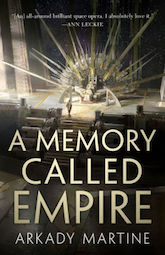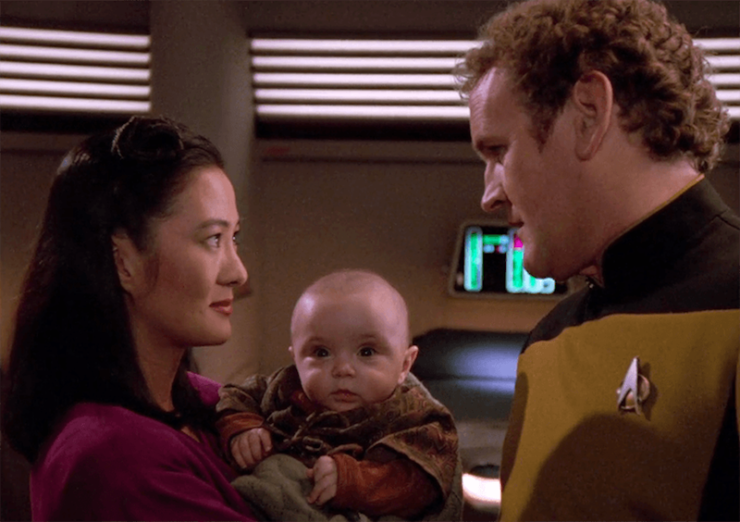If you’ve watched Star Trek: The Next Generation, it has probably occurred to you that keeping families on a starship is a questionable practice. The Enterprise-D is constantly heading into dangerous situations, and while we can assume that there are protocols in place to keep the kiddies feeling safe and cared for, you have to wonder who thought this was such a brilliant idea to begin with.
Turns out the answer is: probably the Federation?
Over at the Daystrom Institute on Reddit, user thx712517 had a theory as to why the Family Aboard program existed at all in Starfleet. It started with pointing out one key factor in recruitment: if you have a society in which all your needs are tended to and life is pretty grand—free healthcare, endless opportunities to study and learn, holodecks to let you travel just about anywhere with a few words of input—why would you ever want to leave home? Once the Klingon cold war is over and the Romulans don’t seem to have any interest in jousting, there’s no threat to buoy Starfleet’s enlistment numbers. Who is going to sign up?
They went on to say:
There will always be those who seek adventure, who want to explore, who have a burning need to get out there whatever the cost. But would it be enough to crew hundreds of starships, especially on longer missions beyond the Federation’s farthest borders? In order to push the boundaries of exploration (which means traveling for long periods of time) while crewing each ship, being able to offer life aboard for the serving crew and their family would become very important. We see that Picard chose his career over family life, but I don’t see later generations being as willing to do so.
The Ambassador class, rather than a failure in design, could be seen as a proof of concept for the Family Aboard experiment later brought to full fruition in the Galaxy class starship design. The more relaxed attitude aboard ship, the large pleasant hallways and eating areas, the arboretum and numerous holodecks, all of it to compete with what is offered planetside and thus continue to attract recruits who would otherwise never consider Starfleet.
The author went on to point out that this practice is summarily dropped during wartime within the Federation, which only seems to prove the point—this does make sense on a functional level. The U.S. military has a similar outline for its handling of families: spouses and children often live on army bases, and they are permitted to follow their active-duty family members provided that they haven’t been deployed in combat situations. Ambassadors and diplomats are given similar treatment, which seems to be the case in the Federation even during tenser points in their history; Spock’s father Sarek traveled with his wife Amanda on his way to the Babel Conference, and they were given accommodation easily, despite the fact that Kirk’s Enterprise was not equipped to carry families.
Buy the Book


A Memory Called Empire
While easier space exploration may seem a glorious dream to us now, the idea that everyone would be clambering to get there in an idealized future makes less sense. Starfleet doesn’t guarantee a better quality of life for people in the Enterprise-D’s day, so more motivation may have been required to retain staff. And there might have been other benefits as well: user thatguysoto noted, “Aside from the children of course, most of the civilians aboard the Enterprise are scientists, teachers, or people who have other expertise and could potentially fill a role in the event of a staffing shortage.”
It should go without saying that starships are big, and they take a lot of people to run, and the Family Abroad policy would be a way to attract citizens with skills that could be useful to Starfleet’s exploratory, scientific, diplomatic, and defense functions—while still operating (somewhat) outside the rules and regulations of Starfleet. Even without specific roles for each civilian, it doesn’t hurt to have the expertise of so many spouses and family members just hanging around. Keiko O’Brien’s scientific work in the plant biology lab and Guinan’s role as the host of the ship’s social center, Ten Forward, (and as an informal counselor to many of the crew) are perfect examples of how having non-Starfleet members aboard a starship could work out to the Federation’s advantage.
While it’s still a hard sell to convince many fans that small children belonged on the Enterprise-D (poor Alexander), it seems Starfleet’s policy was largely beneficial during peacetime, and helped to fill out some of the more interesting corners of the Federation.










